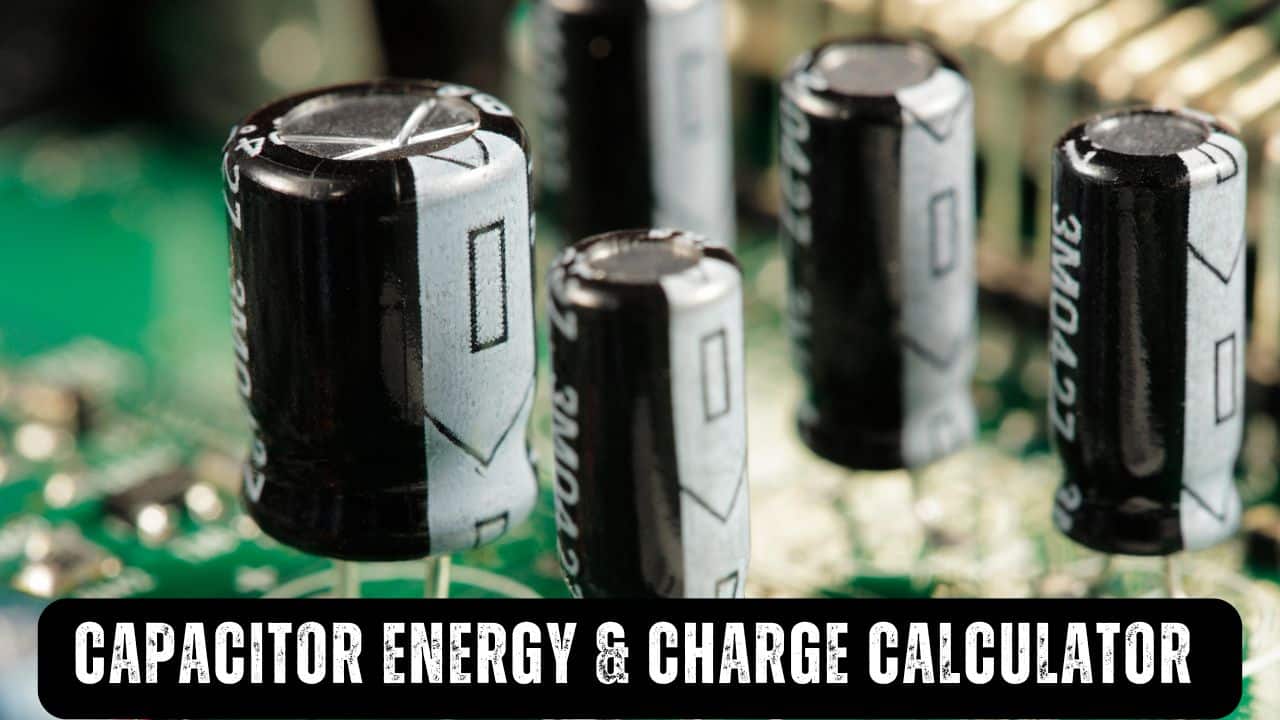Capacitor Energy and Charge Calculator
Calculate capacitor energy and charge with multiple unit options

Capacitor Energy & Charge Conversion
Learn how to calculate the energy stored in a capacitor and explore the principles of capacitive energy storage with practical examples.
What is a Capacitor?
A capacitor is an electronic component that stores electrical energy in an electric field. It consists of two conductive plates separated by an insulating material, known as a dielectric. Capacitors are essential in various electronic circuits for energy storage and filtering.
Energy Storage Formulas
E = ½ × C × V²
Where:
- E = Energy in Joules (J)
- C = Capacitance in Farads (F)
- V = Voltage in Volts (V)
Alternative Energy Formulas
E = ½ × Q² / C
E = ½ × Q × V
E = ½ × Q × V
Where:
- Q = Charge in Coulombs (C)
Charge Formula
Q = C × V
Example
Given:
- Capacitance (C) = 300 μF = 3×10⁻⁴ F
- Voltage (V) = 20 V
Energy Stored:
E = ½ × 3×10⁻⁴ F × (20 V)² = 60 mJCharge Stored:
Q = 3×10⁻⁴ F × 20 V = 6 mC